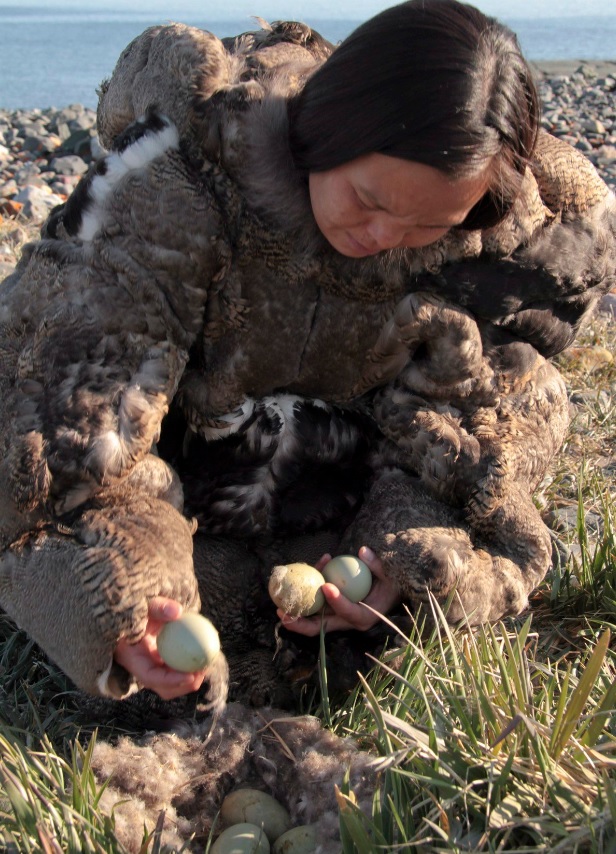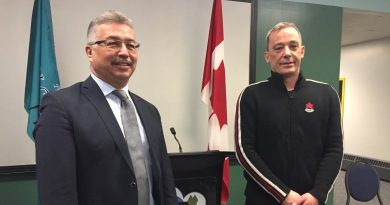Nunavut Canada community revives eiderdown business

A small Inuit community in Canada’s eastern Arctic territory of Nunavut is reviving its eiderdown business, something it hopes provides jobs and opportunity for the isolated settlement.
“They’re ready and eager to sell their down, said Brandon Clark, the community development officer in the hamlet of Sanikiluaq. “(The community) is really excited.”
Long tradition
Sanikiluaq is a community of approximately 850 people located in the Belcher Islands in Canada’s Hudson Bay.
Eiderdown has long been used by community members to make traditional parkas that are then used for hunting and going out on the land.
Eider ducks use their own down to insulate their eggs.
Inuit collect down from the nests, but leave enough so the eggs stay insulated and the population they rely on stays strong.
After that, the down needs to be cleaned to remove sand, dirt and twigs.
For one parka, the process takes around eight hours.
Trailer for the 2011 documentary film People of a Feather, that explores the relationship between the Inuit in the Belcher Islands,and the eider duck.
New approach
In the early 2000s, an attempt was made to commercialize this traditional practise, with a focus on selling eiderdown, before it shut down.
This time, the community is confident the factory will remain sustainable, with a focus on selling goods like traditional down-filled parkas and duvets.
While 1kg of eider down sold for around $500. A parka made by a local seamstress will run around $1500 CDN.
“They were more focused on government funding previously,” said Clark. “Now we’re looking more towards sales that we could make to higher-end markets in the South.”
About eight seamstresses will be employed to make the goods. Four people will be hired to clean the down. An income will be paid to the hunters who gather the down out on the land.
The first products are planned for sale by fall 2015.
Write to Eilís Quinn at eilis.quinn(at)cbc.ca
Related stories from around the North:
Canada: New national park planned in Canada’s High Arctic, Eye on the Arctic
Finland: Arctic parks among most visited in Finland, Yle News
Norway: Surfing in the Arctic, Barents Observer
Russia: Economic crisis hit airlines hard in Russia’s western Arctic, Barents Observer
United States: Alaska community gets into reindeer meat market, Alaska Dispatch News



